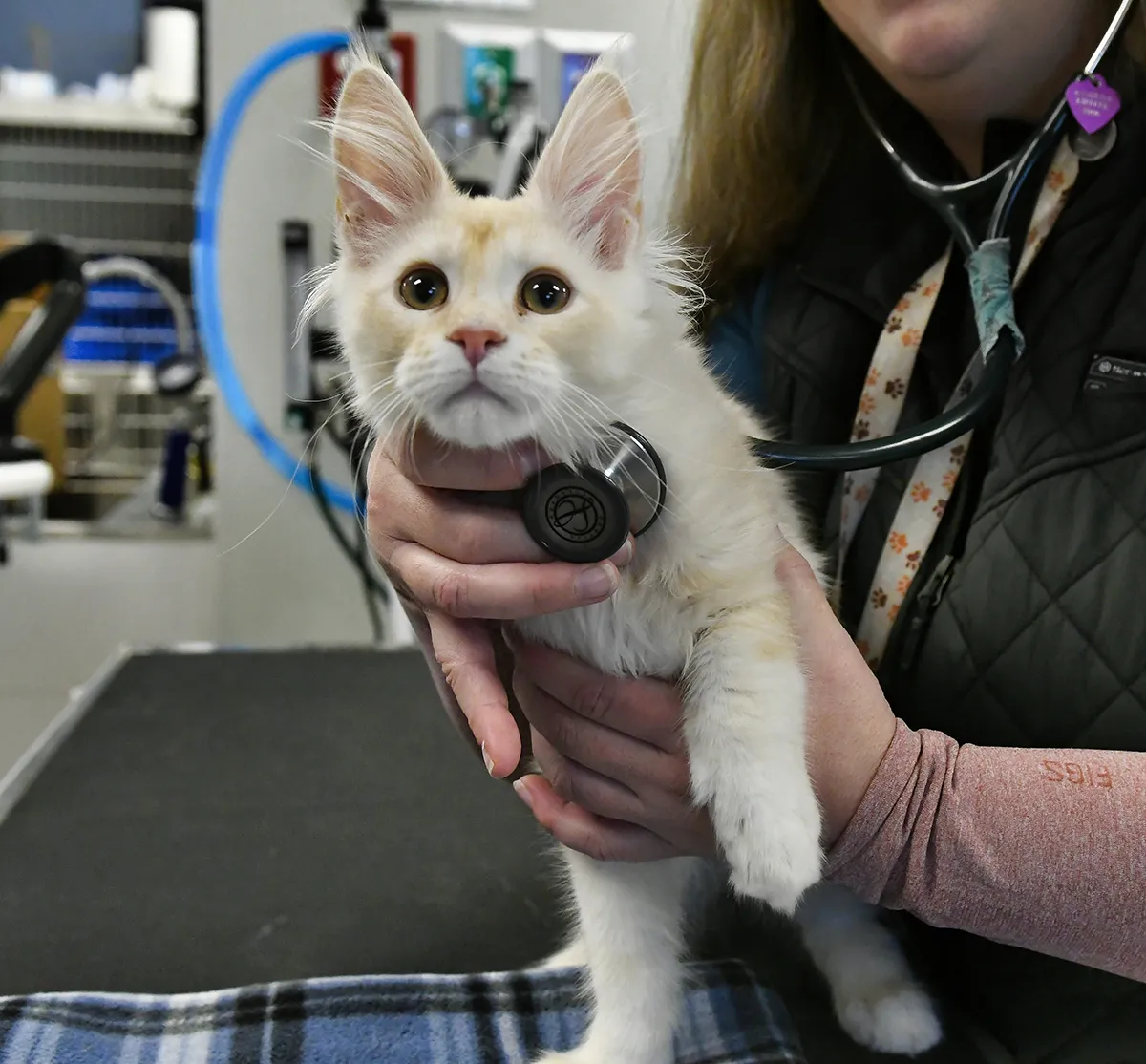
Veterinary cardiologists assess and treat conditions that affect the heart and lungs.
The most important diagnostic tool to evaluate and monitor your pet’s heart is echocardiography. An echocardiogram, also known as an echo or cardiac ultrasound, is a diagnostic procedure that looks closely at the heart and respiratory system. An echo uses high-frequency sound waves to create live images, allowing veterinarian cardiologists to visualize the heart and observe how it is functioning in real time. No sedation is necessary as this is a non-invasive procedure.
Arrhythmia, or an irregular heartbeat, can be caused by abnormal electrical activity in the heart muscle. It can affect the heart’s speed, strength, or regularity. Arrhythmia can be genetic and present from birth, or it can be caused by something that has happened in the animal’s life.
Chronic degenerative valvular disease (CVD), also known as myxomatous mitral valve disease or valvular endocardiosis, is a noninfectious condition that affects the heart valves of dogs. It’s the most common type of heart disease in dogs and is characterized by a slow degeneration of the heart valves, usually the mitral valve.
Dilated cardiomyopathy (DCM) is a heart disease in dogs that causes the heart to enlarge and make it more difficult to pump blood. It’s a serious condition that can lead to heart failure, and it’s especially common in large and giant dog breeds like Doberman Pinschers, Great Danes, and Boxers.
A heart murmur is an abnormal sound that a veterinarian hears when listening to a pet’s heart with a stethoscope during a physical exam. Like people, an animal’s heart should have two distinct heart sounds: lub-dub, lub-dub, lub-dub. When an additional “whooshing” sound is heard between the normal heart sounds, this is called a heart murmur.
Patent ductus arteriosus (PDA) is a congenital heart defect that occurs when the ductus arteriosus, a blood vessel in the heart, doesn’t close properly after birth. This causes blood to recirculate through the heart, which can lead to heart failure.
Pericardial effusion is a condition in which an abnormal amount of fluid builds up in the sac around the heart, which can interfere with the heart’s ability to pump effectively. It’s a common disease in dogs, but uncommon in cats.
Pulmonary hypertension (PH) is a condition that occurs when the blood pressure in a pet’s lungs is much higher than normal. It can be caused by a number of conditions, including heartworm disease, pulmonary thromboembolism, and left heart failure.
Pulmonic stenosis (PS) is a congenital heart defect that narrows the opening of the pulmonary artery in dogs and cats, which can obstruct blood flow from the heart to the lungs. It’s the third most common congenital heart defect in dogs.
Subaortic stenosis (SAS) is a common congenital heart condition in dogs that occurs when the area below the aortic valve narrows, obstructing blood flow. It’s caused by a ridge or ring of fibrous tissue that increases pressure in the left ventricle and increases blood flow velocity.
Systemic hypertension, also known as high blood pressure, is a chronic condition that occurs when blood pressure in the arteries that carry blood from the heart to the body is persistently elevated. It can be caused by a number of medical conditions and lifestyle behaviors.
The good news is that many if not most heart and lung related conditions can be managed with medication and regular monitoring.
Only in rare cases will surgery or a more invasive procedure be necessary.
The good news is that many if not most heart and lung related conditions can be managed with medication and regular monitoring. Only in rare cases will surgery or a more invasive procedure be necessary.
To schedule an appointment with a veterinary cardiology specialist, call (763) 463-9800.